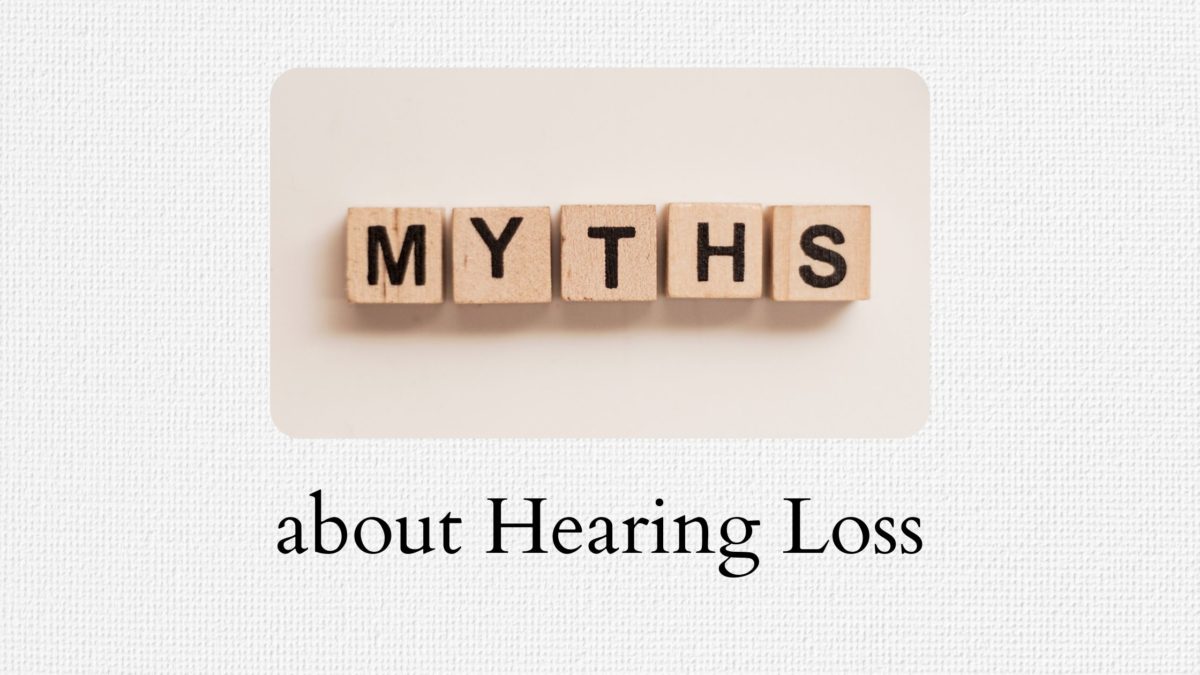
Myths about Hearing Loss
Hearing aid technology has advanced remarkably in the past decades, yet we hold on to many beliefs based on an old-fashioned style of hearing assistance. In addition to our deeply held assumptions about hearing loss, we also have built a mythology around hearing loss. Many of the things we take for granted as true can turn out to be not what they seem, and gladly we have the resources of the scientific and audiological communities to help us sift the truth from the mythology. Some of the things we believe about the past have changed due to shifts in the reality of hearing and assistance, so let’s take stock of the old mythology as well as the updated facts that can set us straight!
Myth #1: Hearing aids are embarrassing.
In the past, you might have seen someone struggling with hearing aids in one way or another. Some of the older devices with manual controls were difficult to work with, particularly for people who have issues with manual dexterity or arthritis. Some of these older style aids also had problems with feedback, the phenomenon when the aids squeal with a high-pitched tone. Still others of the old-fashioned aids were unsightly, sitting in plain sight with tan molded plastic that some found to be embarrassing. The latest hearing aids have transformed each of these aspects. Digital controls via smartphone make it possible for a person with arthritis to change settings easily, and noise reduction technology has made feedback less of an issue than ever. These recent developments have placed low-profile and sleek hearing aids on the market, as well, eliminating the embarrassment that might have come with older aids.
Myth #2: Hearing loss only affects seniors.
This myth about hearing loss is based in a shifting truth. Indeed, hearing loss is most common among seniors, those who are likely to have age-related or noise-induced hearing loss. After years of exposure to noise, the sensitive hairlike organelles of the inner ear called stereocilia are susceptible to damage. However, older people are not alone among those who have experienced damage to hearing. Researchers continue to investigate why younger people are demonstrating higher rates of hearing loss than prior generations, but many point toward the use of headphones and earbuds. The statistics show greater incidence of hearing loss among younger people, and the hearing health community is poised to respond with treatment.
Myth #3: I am doing fine without hearing assistance.
This myth is rooted in deep psychology, and each person has a unique reason to believe that they are bigger than hearing loss. Some people deny that they have hearing loss at all. Although they might have some deep sense that their hearing is suffering, they would rather look the other way. Some people think that their personal strategies are sufficient to communicate despite knowing about their loss. They feel as if pretending to hear, dodging questions, and shifting conversations will do well enough for them to get by in conversations and in casual interactions. Despite these and the many other reasons people avoid dealing with hearing loss, these strategies do not make it go away. In addition, some forms of hearing loss can get worse with time, and communication strategies might stop working in the future. Hearing loss treatment from a hearing health professional is the only durable solution.
Myth #4: I can wait until later to get a hearing test.
Although you might want to put off getting a hearing test, there is no time better than the present to pursue treatment for loss. For those who do not have hearing loss or have a very mild case, setting the baseline of hearing ability is important for future assessment. Those who do have hearing loss will reap a wide range of benefits from treatment, not only relating to improved communication ability but also in terms of cognitive, mental, and physical health.
If you or someone you love has been putting off getting a hearing test, let this be the moment when you set the record straight. The myth that you can put off your test indefinitely could have serious ramifications for your present and future wellbeing, so don’t delay!
